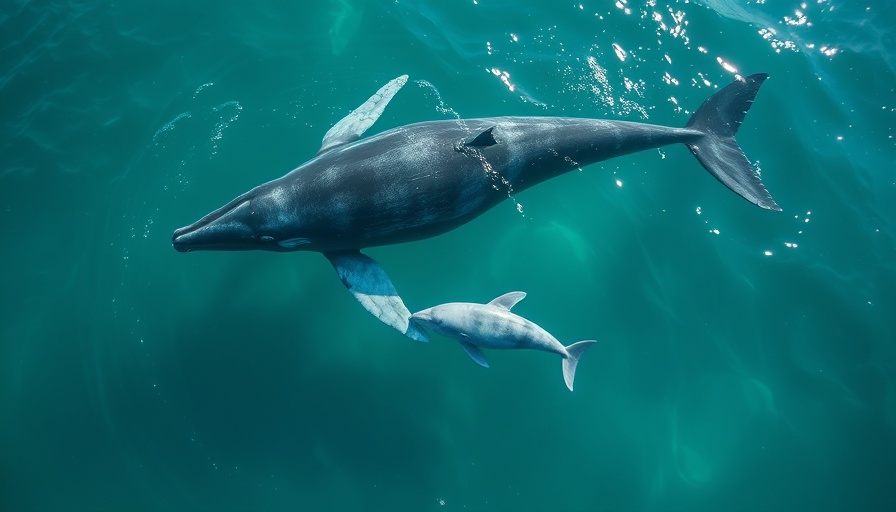
The Great Whale Conveyor Belt: Nutrient Transport by Whales
In a remarkable testament to the interconnectedness of our planet's ecosystems, recent research from the University of Vermont has revealed that baleen whales are not only majestic giants of the sea but also vital nutrient transporters for our oceans. Dubbed the "great whale conveyor belt," this phenomenon shows how these magnificent creatures carry significant quantities of nutrients across vast ocean basins, significantly impacting marine ecosystems.
These nutrient transfers occur primarily through their urine, yet they also result from other biological processes such as skin shedding and the decomposition of deceased whales. This newly discovered mechanism helps shift nutrients from nutrient-rich cold waters to nutrient-poor tropical regions, effectively feeding the myriad of marine life dependent on these nutrients to thrive.
Understanding the Nutrient Flow
According to the study, great whales, including species like gray whales, humpbacks, and right whales, transport approximately 4,000 tons of nitrogen annually to tropical and subtropical coastal areas that often suffer from low nutrient levels. This annual nutrient export plays a crucial role in supporting the growth of phytoplankton—microscopic plants that are the foundation of the ocean food web—and provides a food source for larger marine animals such as sharks and fish.
As Joe Roman, a biologist involved in the study, noted, these nutrient movements are akin to collecting leaves in a garden to make compost. By concentrating nutrients in areas that typically lack them, migrating whales strengthen local ecosystems, helping coral reefs and coastal environments flourish.
Whaling and Its Impact
The ramifications of commercial whaling are starkly highlighted in this research. Historically, whale populations were much larger, meaning that the nutrient transport and consequent benefits to marine ecosystems were also three times higher. With populations decimated by whaling, today’s nutrient conveyor significantly impacts the ecological balance of our oceans. While recovery efforts for some populations show promise, the resurgence of whales also brings challenges, as their migrations can affect fisheries and shipping activities.
Conservation efforts are critical at this juncture. As some whale species begin to rebound, the positive effects on ocean ecosystems are likely to become increasingly evident. Understanding and supporting these ecological roles can inform future conservation and management strategies for both whales and the broader marine environments affected by their presence.
The Future of Whales and Ocean Health
The findings of this study not only affirm the importance of whales in nutrient cycling but also underscore the intrinsic value of protecting marine biodiversity. As these majestic creatures continue their impressive yearly migrations—sometimes spanning thousands of miles—they inherently contribute to a dynamic and interconnected oceanic system.
Maintaining healthy whale populations may support greater overall ocean health, enhancing ecological resilience in a changing climate. As humans, our commitment to preserving both these iconic mammals and their habitats is paramount. With global climate changes affecting marine ecosystems, understanding the nuanced roles of keystone species like whales will be crucial in shaping how we approach ocean conservation in the future.
Why Whale Conservation Matters
Ultimately, the migratory actions of whales have vast implications—not only for the organisms that directly depend on the nutrients they provide but for the entire marine food web and planet's health. This research invites us to view whales not merely as wild animals but as active participants in the health of our oceans. Through concerted conservation efforts, future generations may witness a resurgence of whale populations, which plays an essential role in restoring balance and vitality to our planet's oceans.
To learn more about how your actions can contribute to whale conservation, take a moment to explore ways you can advocate for healthy marine ecosystems and the incredible species that inhabit them.
 Add Row
Add Row  Add
Add 



Write A Comment